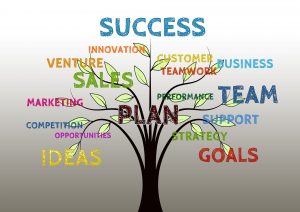
Case Study: Wearing many hats to help a young client find his path
June 5, 2019
Principles in Action: Change is inevitable in career development. Fear of it shouldn’t be
June 5, 2019Some students are looking for career tests to provide them with clear-cut answers and a-ha moments
Dawn Schell
Viveka is a third-year student who started off her degree with enthusiasm and confidence, but lately is not enjoying her program and thinks she might like to switch. She isn’t sure what else she would like to study. She has invested a great deal of time into her education already and is worried about what a change would mean for her.
Jamie is a first-year student who is eager to know what their career options are, because they don’t want to waste their time or money while at university.
Fred is close to finishing his degree and is planning to work immediately after graduation, but he has no ideas about what he can do with his education. He hasn’t given much thought to it yet as he’s been busy with school.
These are some of the more common reasons students seek career counselling at the University of Victoria’s Counselling Services office. Students can find it confusing to navigate career planning during post-secondary. They face conflicting messages about the world of work as well as pressures from parents and community, and financial challenges. Students frequently say they feel the weight of making the “right” decision and are looking for some way to validate or confirm their choices.
Some students struggle with the belief that they “should” know what they want to do. They often say that everyone around them seems to know, and they feel isolated and left behind in their uncertainty.
 Career exploration through assessments
Career exploration through assessments
While we offer a variety of career exploration services, students often request career assessments as a way to answer their questions. This is despite the fact that students often share stories of receiving – in their opinion – absurd career options for assessments taken in high school.
At the University of Victoria, we offer the Myers-Briggs Type Indicator and Strong Interest Inventory career assessments. We also offer the Career Interest Profiler (Canadian edition), Career Values Scale and the Work Personality Index. However, there is little uptake on these options, even though those who have tried them have found them helpful.
What are students expecting when they complete a career assessment? A few are anticipating clear-cut answers, angel voices singing, bright lights, a-ha moments. Some want confirmation for the path they are already considering. Most often, students are looking for ideas to explore. As one student recently told me, “I have a narrow idea of what type of work is out there and I want to expand my horizons.” This rings true for many students. Often their only exposure to work is their experiences at school and what their family members do for a living.
Managing expectations
It is important to manage students’ diverse expectations about what career assessments can accomplish. One way we do this is with a clear statement on our website and our brochures. It reads, “These assessments will not make career decisions for you. It will be a good source of ideas and information … no assessment can tell you who you are or what to do but it might give you words to claim who you are.”
When we begin an interpretation session with a student, we start by finding out what they are expecting from the assessment results. This helps to direct some of the conversation about the results and how to interpret them.
Then, we ask for their career story. Their story teaches us about their interests, skills, values, strengths, pressures, supports, work and volunteer history. We encourage students to make career decisions based on a more fulsome picture than can be derived solely from the assessment. We also remind students that making career decisions is a lifelong, dynamic process. Our aim is help them make an informed choice.
The limitations of assessments
While formal assessments are useful, they are imperfect tools. One limitation we have observed is that the assessments we use require the student to identify as either male or female. This can be an issue for gender-diverse students. One way we try to mitigate concerns is to inform students that assessments require one to identify as either male or female. This is done in person and through a statement on our brochure and website. While this does not solve the problem, it acknowledges the existence of the issue.
For some members of our international community who want to take career assessments, language skills can be a barrier. While some assessments are offered in multiple languages, the results need to be in English so our counsellors can do the interpretation. For some, we recommend they have an individual career counselling session or participate in a career exploration group. In cases where the student still chooses to take the formal career assessments in English, we offer additional time in the interpretation session to address language issues and cultural context.
Another limitation is there are few references in career assessments to technological innovations or the rise of artificial intelligence. It’s not an easy task to keep these assessments up to date when the world of work is rapidly changing.
A continuing conversation
The real work in any career assessment process is the conversation we have during the interpretation. We are weaving their career story into the interpretation, pointing out interesting paradoxes or ideas that connect to what they shared, and creating a bigger picture of who they are and what they might like to do. We end each session with reviewing places they can gather more information about career options online or via informational meetings. We encourage students to share their results with people they trust and continue to process their meaning. Finally, we are clear that the interpretation isn’t the end of the conversation. Students are always welcome to come back.
Dawn Schell, MA, CCC, CCDP has been a career counsellor for over 20 years. While Schell’s main focus has been working with young adults, she has also worked with mid-career changers and retirees. She believes career development is a lifelong process and delights in seeing clients find meaning and purpose in all stages of life.


 Career exploration through assessments
Career exploration through assessments